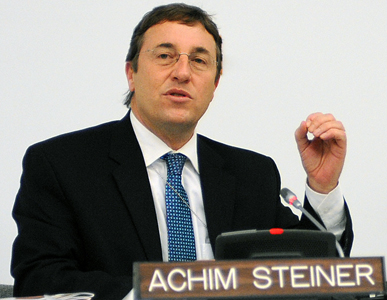
Striking oil workers in Nigeria Monday agreed to call off their strike while major oil marketers have also suspended their refusal to lift petroleum products, signalling an end to the chronic energy crisis that had threatened to shut down the nation.
The decision by the blue-collar National Union of Petroleum and Natural Gas Workers (NUPENG) and the white-collar Petroleum and Natural Gas Senior Staff Association of Nigeria to end the strike followed a meeting of the stakeholders, convened by the Senate in the capital city of Abuja earlier in the day.
Chairman of the Senate Committee on Petroleum Resources, Senator Magnus Abe, who read the communique to journalists after the meeting, said Finance Minister Ngozi Okonjo-Iweala and other stakeholders who attended the meeting unanimously agreed to the peace deal, in the interest of the nation.
“We have agreed on the following: first is that the Minister of Finance will give an undertaking to the Major Marketers and Depot Managers that the work of the committee being headed by CBN (Central Bank of Nigeria) and PPPR (Petroleum Products Pricing Regulatory Agency) on the outstanding claims would be concluded and be reflected in the hand over notes to the incoming administration,” the local media quoted Abe as saying.
He said the major oil marketers had agreed to begin lifting of petroleum products within the next six hours, while depot managers had agreed to open all their depots nationwide so that lifting would commence.
The strike by oil workers, especially petroleum tanker drivers, meant that most filling stations across the country have run out of supply, leaving Nigerians to depend on the black market, where the price of the product was going for four times the official rate.
With schools, banks, telecommunications service providers, airlines and other businesses unable to get fuel, most of them either shut down or curtailed their activities drastically Monday.
Since the public power utility is also producing power at an all time low of 1,325 MW, due to the destruction by vandals of the pipelines supplying gas to power stations, the energy crisis pushed Nigeria to the brink of shutdown Monday, ahead of Friday’s transfer of power from President Goodluck Jonathan to incoming President-elect Muhammadu Buhari.
Irked by the crisis, the incoming ruling All Progressives Congress (APC) party accused the outgoing government of ‘sabotage’, saying President Goodluck Jonathan is handing over a nation in deep crisis.
Nigeria – Africa’s largest oil producer – relies on importation to meet over 70 per cent of its domestic fuel needs, due to poorly-functioning local refineries.
But oil importers, fearing the new government may not pay their subsidy claims, have since stopped importation.











